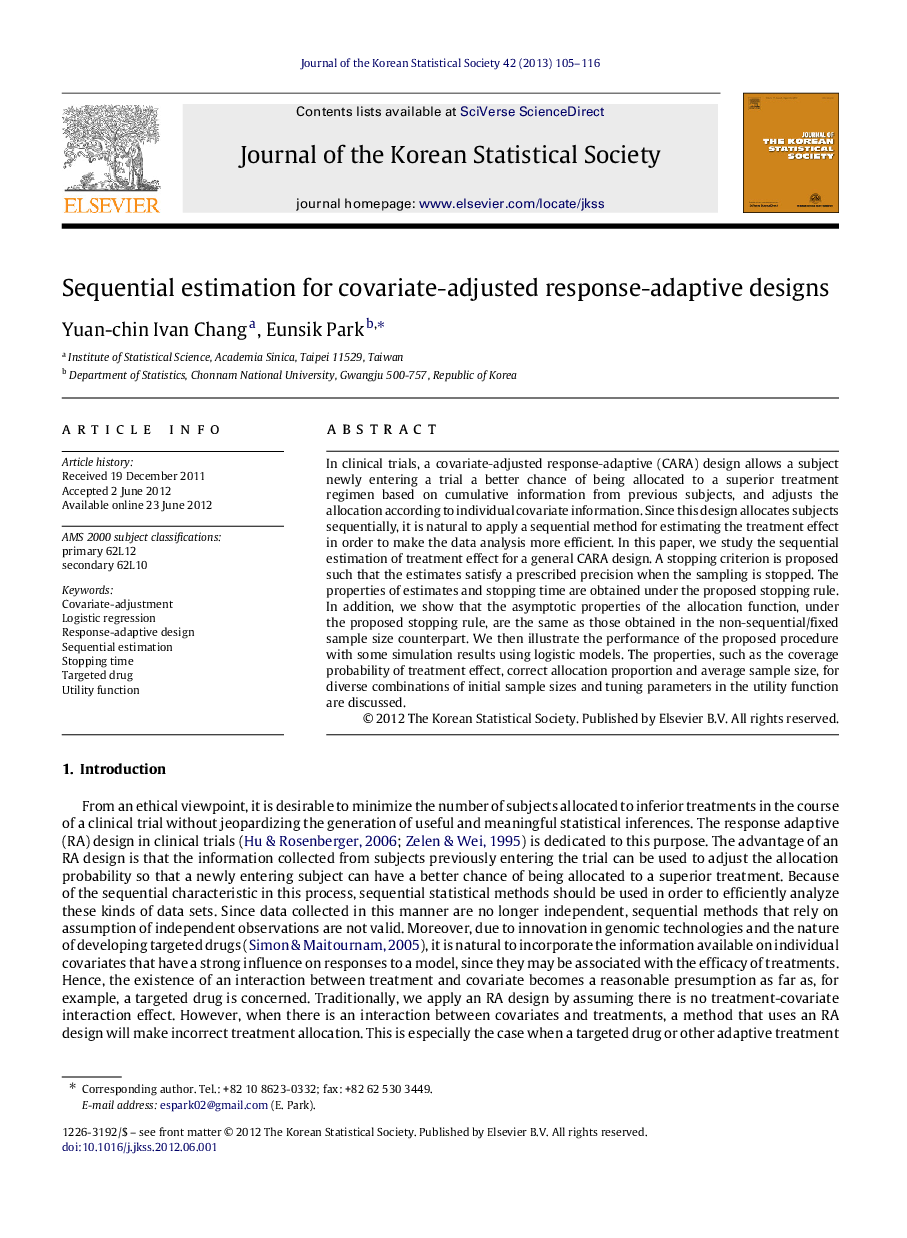| Article ID | Journal | Published Year | Pages | File Type |
|---|---|---|---|---|
| 1144679 | Journal of the Korean Statistical Society | 2013 | 12 Pages |
In clinical trials, a covariate-adjusted response-adaptive (CARA) design allows a subject newly entering a trial a better chance of being allocated to a superior treatment regimen based on cumulative information from previous subjects, and adjusts the allocation according to individual covariate information. Since this design allocates subjects sequentially, it is natural to apply a sequential method for estimating the treatment effect in order to make the data analysis more efficient. In this paper, we study the sequential estimation of treatment effect for a general CARA design. A stopping criterion is proposed such that the estimates satisfy a prescribed precision when the sampling is stopped. The properties of estimates and stopping time are obtained under the proposed stopping rule. In addition, we show that the asymptotic properties of the allocation function, under the proposed stopping rule, are the same as those obtained in the non-sequential/fixed sample size counterpart. We then illustrate the performance of the proposed procedure with some simulation results using logistic models. The properties, such as the coverage probability of treatment effect, correct allocation proportion and average sample size, for diverse combinations of initial sample sizes and tuning parameters in the utility function are discussed.
